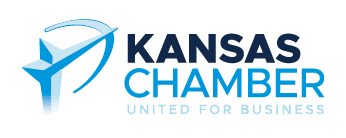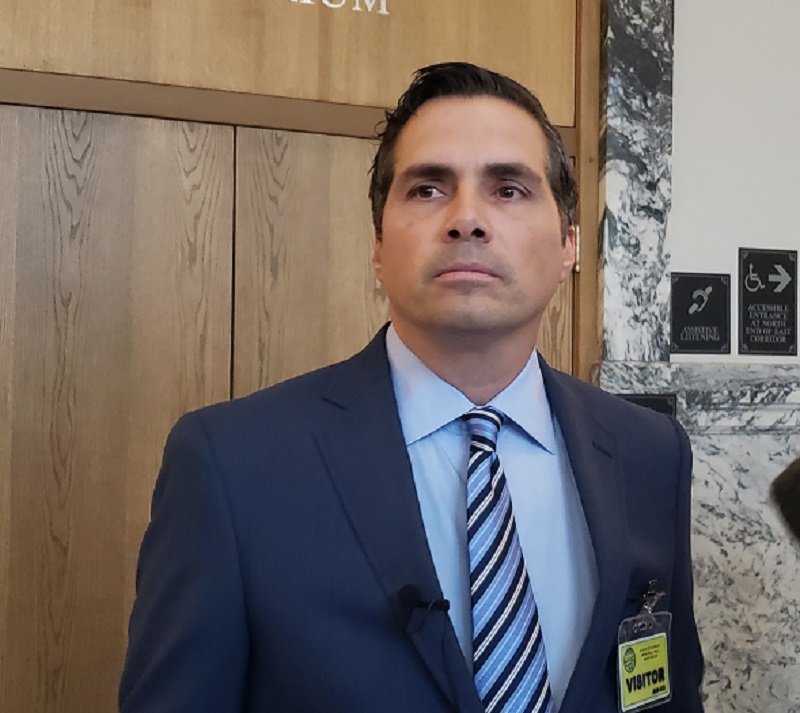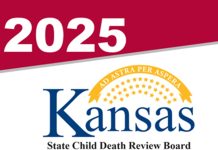Good afternoon everyone:
A crazy, busy week under our belt with the legislative session just around the corner.
Sen. Pat Roberts announces he’s retiring after 2020, Gov.-elect Laura Kelly says she will keep outgoing Republican Gov. Jeff Colyer’s budget director, and a variety of staff announcements from incoming Secretary of State Scott Schwab, Insurance Commissioner Vicki Schmidt and House Speaker Pro Tem Blaine Finch.
Plus 18 candidates are lining up for a seat on the Kansas Court of Appeals. Here’s a roundup of the bios for the candidates seeking Kelly’s appointment to the court.
Now onto the news you may have missed but need to know. Let’s start it off today with Kansas’ most influential business organization.
Chamber reveals 2019 agenda
The Kansas Chamber of Commerce last week introduced its legislative agenda for 2019, with a focus on a variety of issues ranging from taxes to school funding to Medicaid to the state’s legal system.
The chamber’s new agenda calls for Kansas to return the revenue windfall from changes in the federal tax code and restore the ability of businesses to expense capital investments. Both of those proposals were considered last year, and they came up short in the Legislature.
Republican leadership also has vowed to press ahead with a bill returning the windfall next session.
Democratic Gov.-elect Laura Kelly has not indicated whether she would sign a bill returning the windfall — a proposal that essentially allows Kansans to itemize on their state return if they don’t itemize on their federal tax return. A bill doing just that has already been filed.
The federal standard deduction is fairly generous — more so than the Kansas deduction — and discourages taxpayers from itemizing on their returns.
The chamber supports the state imposing sales tax on out-of-state, internet-only retailers in response to a U.S. Supreme Court decision clearing a path for taxing online sales.
The chamber also wants the Legislature to revisit a proposal that would allow seat belt use to be introduced as evidence in a personal injury case, which potentially could reduce damage claims. Last year, the bill died in a House committee.
The chamber opposes expansion of Medicaid and supports a constitutional amendment giving the Legislature the authority to exclusively decide school funding. It additionally opposes allowing public funds to be used to go to court to seek more public funding (think school litigation here).
Also, the group wants to preserve tax incentives offered through the state’s High Performance Incentive Program and the Promoting Employment Across Kansas program.
HPIP makes available a 10 percent income tax credit for eligible capital investments that exceed $50,000 — or $1 million in five metro counties — with a carry-forward that can be used in the next 16 years under certain circumstances.
Under PEAK, companies can receive 95 percent of the Kansas withholding taxes from jobs that pay at or above the median wage in the county where the company is located.
Another issue the chamber is watching is electric rates. Kansas has the highest electric rates in the Midwest and a pitched battle is shaping up over the issue, likely pitting the state’s power companies against large businesses that use lots of electrical power.
Senate President Susan Wagle recently removed Republican Sen. Rob Olson of Olathe as chairman of the Utilities Committee after he was blamed for not doing enough about electric rates. The change in leadership is expected to open more debate about the issue.
In that context, the chamber wants a legislative study on the competitiveness of Kansas energy rates, including electric generation deregulation, and suggestions to improve the state’s regional ranking.
Orman speaks
After finishing a distant third in the Kansas governor’s race, independent Greg Orman finally emerged last week to write a column for RealClear Politics.
The column generally addresses why he remained in the race despite calls for him to withdraw out of fear that he would spoil the race for Democrat Laura Kelly.

The piece is largely more of Orman’s criticism of the two-party political system dominated by Democrats and Republicans.
“I believe the most important issue facing our nation is a dysfunctional two-party system that values self-preservation over everything else and is allowing the greatness of our country to slip away,” Orman wrote.
“It’s preventing meaningful progress on so many issues that I care deeply about, including climate change, but also our burgeoning national debt, immigration policy, income inequality, and wage stagnation, to name a few. …
“On the most divisive issues facing our nation, guns and abortion, our two-party system exacerbates our divisions instead of trying to bridge them,” he wrote.
Voting rights case expenses
It’s cost Ford County taxpayers about $70,000 so far to defend the county clerk’s decision to keep just one polling place open in Dodge City.
The Topeka newspaper broke this story early last week detailing the expenses arising from the American Civil Liberties Union’s lawsuit seeking to force Clerk Debbie Cox to open a second voting location in Dodge City. Total amount spent so far: $71,481. 
Some critics noted on social media that for that amount of money, a second polling place could’ve been opened.
The ACLU sued Cox after she decided to move Dodge City’s lone polling location to the outskirts of town where critics said it was inconvenient and not easily accessible.
A judge initially denied a request to force Cox to open a second polling location days before the general election, but the case is still moving forward in federal court.
Congressional Leadership Fund returns
Remember the Congressional Leadership Fund? It poured millions into local television last fall trying to defeat Democrat Paul Davis in the 2nd Congressional District and Democrat Sharice Davids in the 3rd District. It won one and lost one, with Republican Steve Watkins defeating Davis and Davids downing Republican Kevin Yoder.
Last week, the super political action committee backed by House Republican leadership announced a digital ad campaign targeting Davids and five other newcomers to Congress for supporting Rep. Nancy Pelosi for House speaker.
“Newly elected Democrats told voters things would be different in Washington, but with their very first vote they caved to party bosses and supported Nancy Pelosi for speaker,” CLF President Dan Conston said in a statement.
“While it takes some politicians years to sell out, it took these Democratic members just one day to break their bond with voters back home,” he said.
During the election, Davids didn’t commit to supporting Pelosi for House speaker. It wasn’t until she after she won the election that she announced her support for Pelosi.
“Washington is broken and I think leadership from both parties— Paul Ryan and Nancy Pelosi— needs to accept responsibility for the partisan mess,” Davids said in a statement before the election.
“I will not support anyone for leadership who doesn’t articulate their plan to change the way business is being done in Washington,” she said.
Here’s the ad:
More Roberts fallout
The tremors from Sen. Pat Roberts’ announcement Friday that he would not run for re-election continued to be felt over the weekend.
U.S. Secretary of State Mike Pompeo is now considered a sure-fire candidate if he were to run for the Senate, while Matt Schlapp’s interest in the seat is gaining more attention.
The Hill produced this intriguing story Saturday indicating that a Pompeo candidacy is considered basically a slam-dunk for keeping Kansas a red state.
Sen. Ted Cruz’s narrow re-election over Democrat Beto O’Rourke in deeply red Texas is making some nervous. And the recent defections of state Rep. Stephanie Clayton of Overland Park and Sen. Dinah Sykes of Lenexa to the Democratic Party are making others jumpy heading into 2020.
Meanwhile, Schlapp — chairman of the American Conservative Union — told Fox News that he was going to consider the race “very seriously.”
Doll: ‘It’s going to be a war’
Fresh off the governor’s race, independent state Sen. John Doll predicted the upcoming session will be a “war.”
In an interview with the Garden City Telegram after a legislative forum Saturday, Doll noted that the House and the Senate are leaning more conservative as a Democrat moves into the governor’s office.
“I think it’s going to be a war,” Doll told the newspaper.

During the forum, Doll left it open about whether he would run for re-election in 2020 to the Senate District 39 seat representing the southwestern corner of the state.
“If I had to make the decision today, I’d say, ‘No, I’m not running,’ but you don’t know what two years bring,” Doll told the newspaper.
Doll added that he still believes in his independent running mate Greg Orman, who finished third in the governor’s race.
Doll added that he has no plans to abandon his independent affiliation.
DCF’s counterstudy
The embattled state Department for Children and Families released its own study last week to counter another one that found a connection between strict welfare policies and the rising number of children in foster care.
DCF has resisted that characterization and launched its own study. Last week, as outgoing Republican Gov. Jeff Colyer’s administration draws to a close, the agency released the results of its own study.
The DCF study concluded that the study done by researchers at the University of Kansas was a “work in progress that should not be used as the basis of causal conclusions or policy recommendations.”
The nonprofit group Kansas Appleseed, which advocates for vulnerable Kansans, released its own response to the DCF counterstudy.
Kansas Appleseed said the DCF study could not say with any specificity that the KU study was right or wrong.
It criticized the DCF study for not providing any new information, only saying that the KU study was a “work in progress.”
“There is significant evidence showing safety net destruction is an urgent problem harming families,” the group said.
Over the years, former Gov. Sam Brownback’s administration and a conservative-controlled Legislature tightened up on welfare benefits.
From 2011 to 2016, the state reduced the lifetime eligibility for welfare benefits from 60 months to 24 months.
The monthly average number of people receiving aid from the Temporary Assistance for Needy Families program dropped to 9,605 last year from 38,963 in 2011.













